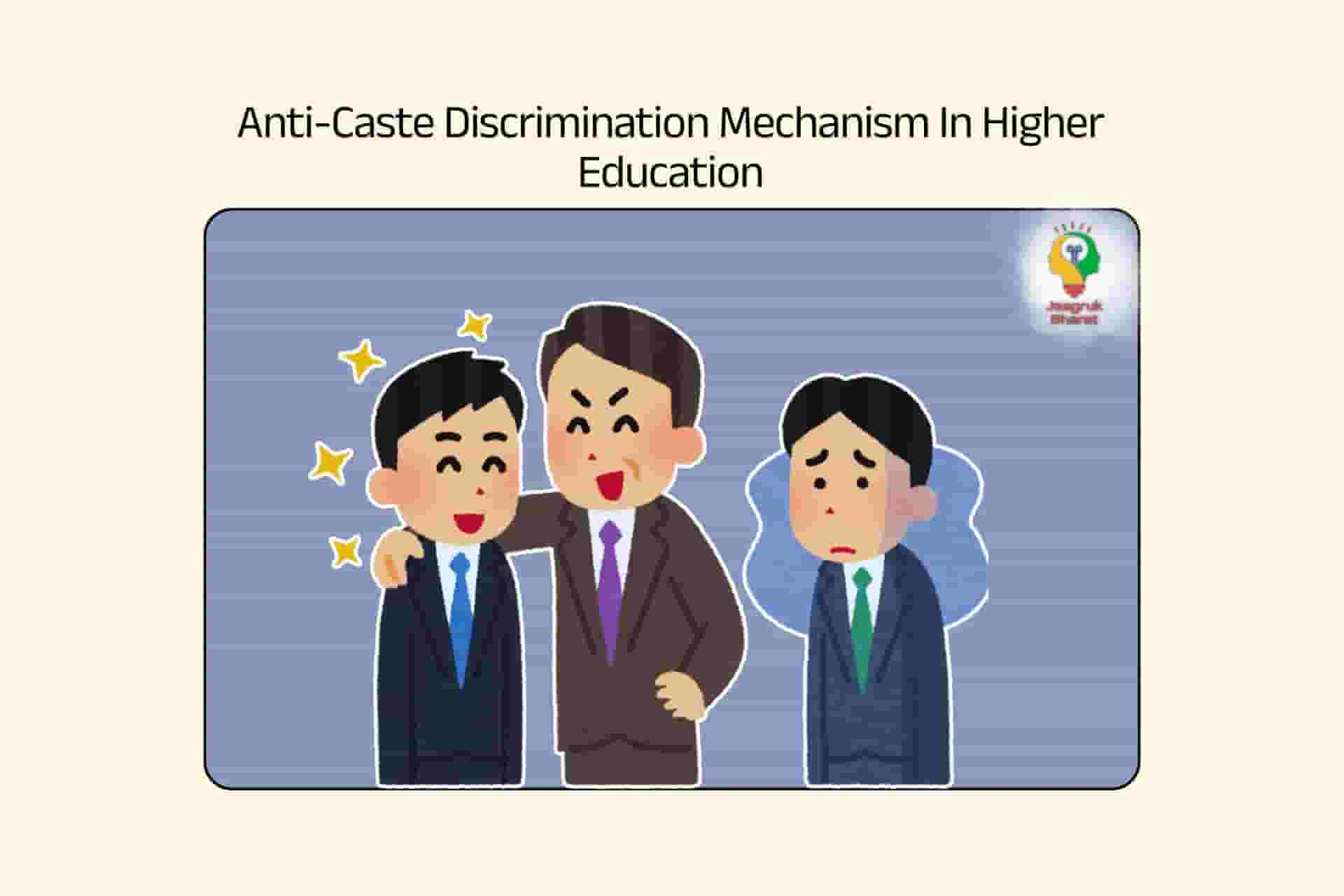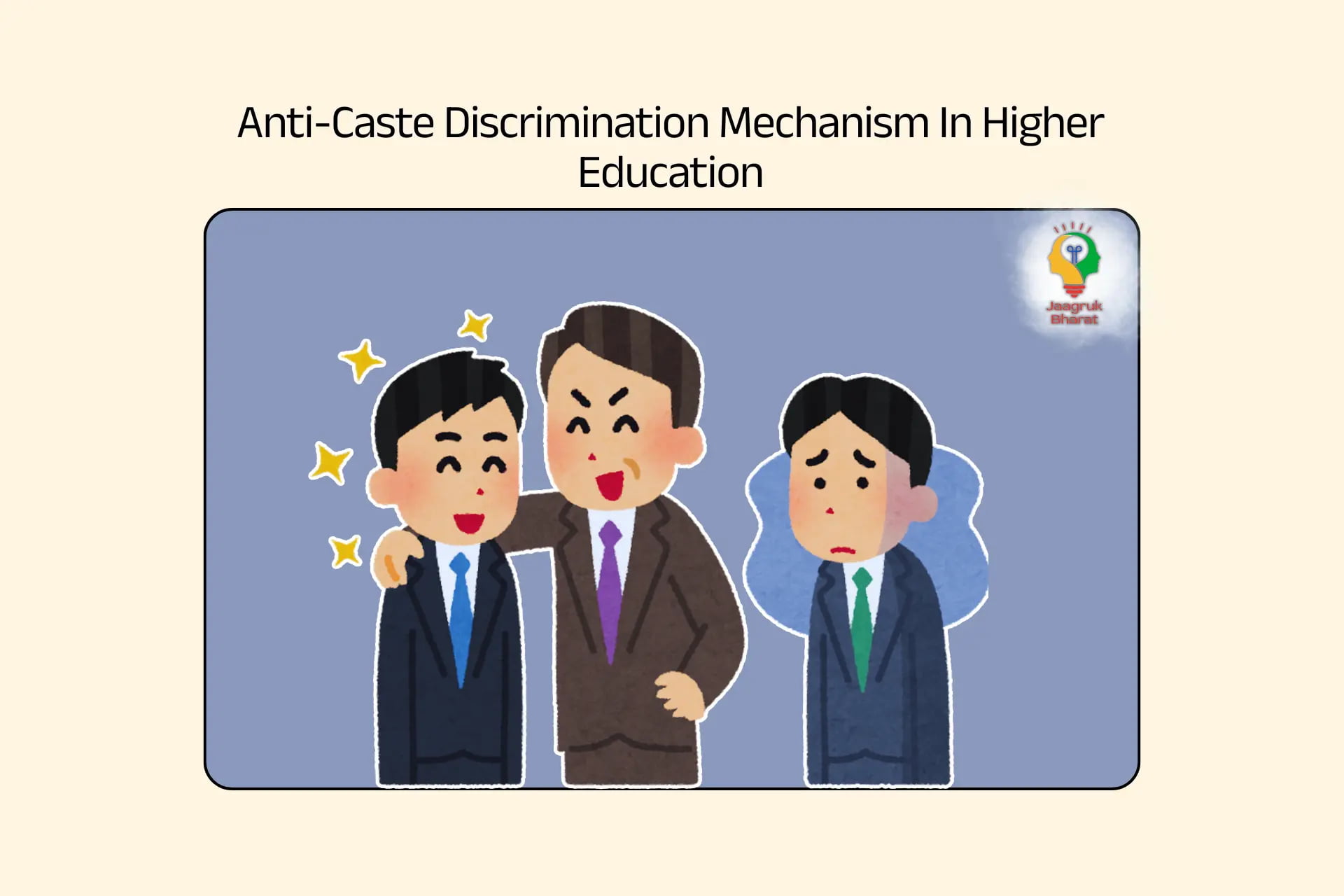Supreme Court Calls For Stronger Anti-Caste Discrimination Mechanism In Higher Education
Updated: 09-10-2025 at 11:53 AM
1k


The Supreme Court recently ordered the University Grants Commission (UGC) to create an effective regulatory system by addressing growing incidences of caste-based harassment among college students and professors. Exercise triple emphasis on discrimination-free environments so colleges can develop protections against any form of caste-based bias according to the apex court.
Supreme Court’s Stand On Caste Discrimination In Higher Education
Reports of discrimination targeting marginalised student populations troubled the Supreme Court judges to a significant extent. The court noted that educational institutions failed to enforce current prevention policies regarding caste-based harassment. The UGC must finalise draught regulations that enforce strict compliance among educational institutions per court directions to enhance the response system.
Key Features Of The Proposed UGC Regulations
The Supreme Court-endorsed system contains multiple essential measures which will be implemented.
-
Mandatory Anti-Discrimination Committees: The law mandates all colleges and universities to officially create anti-discrimination cells that will address complaints.
-
Strict Accountability for Authorities: All authorities at educational institutions will bear responsibility for how they handle caste discrimination cases or risk facing penalties.
-
Stronger Grievance Redressal Mechanisms: The institution adopts a defined system to expedite response to all complaints.
-
Periodic Audits and Reports: Research institutions must present annual reports showing their initiatives against caste-based discrimination to authorities.
-
Student Education Initiatives: Educational workshops and advocacy programmes will teach students how to file complaints along with their rights under these educational programmes.
Also Read: Supreme Court Upholds Juveniles' 'Right To Be Forgotten' Under Juvenile Justice Act
Rising Cases Of Caste-Based Harassment In Educational Institutions
The past few years show multiple prominent cases of caste discrimination have occurred in Indian universities. The educational system shows evidence of repeated discrimination that Scheduled Castes (SC) together with Scheduled Tribes (ST) and Other Backward Classes (OBC) students experience alongside harassment and professorial prejudices. The national spotlight focused on this problem after Dalit University student Rohith Vemula ended his life through suicide at Hyderabad Central University in 2016. Caste discrimination cases occurring at renowned universities such as IITs and AIIMS have generated discussions about existing policy implementation.
UGC’s Role In Curbing Caste Discrimination
A comprehensive set of recommendations has been put together with the view to the drawing up of a new plan of action by the UGC. As the main advisory body for the higher education sector, UGC will:
-
Conduct regular inspections and audits to ensure compliance.
-
Penalise those institutions that do not implement necessary measures against caste discrimination.
-
Provide funds for social inclusion programs.
-
Introducing a toll-free central helpline where students can report caste-based discrimination.
Why Is This Step Crucial?
Discrimination on the grounds of caste not only hampers equal access to education but also creates an unfriendly atmosphere in the learning environment. Caste-based discrimination has risen unnervingly in schools and colleges ever since the issuing of the 2020 Annual Report by the NCRB. The Supreme Court’s direction was aimed not at abolishing caste but at sighing relief to disadvantaged students so that they receive their prior education without fear of prejudice.
Also Read: Supreme Court: Contraband Possession Must Be Physical And Conscious Under NDPS Act
Challenges In Implementation
Although these bodies have reasonably convinced the institutions to abide by certain statutory provisions regarding the initiation and maintenance of anti-caste discrimination measures, very few have responded:
-
Opposition By the Institutions – Many universities may not want to admit that there exists caste bias on their campuses.
-
Feasibility of Enforcement – Monitoring the institutions and departments all over the country would prove to be too challenging.
-
Students Proceed Cautiously – Fearing retaliation, many students simply do not come forward to report discrimination in such cases.
Conclusion
The Supreme Court's directive to establish a strong anti-caste discrimination mechanism will make a decisive impact on ensuring equality in higher education. With the UGC a draftsman of the regulations whereby monitoring, institutional accountability, and student protection will be the major priorities, it is crucial to create an academic atmosphere devoid of discrimination if progressive and inclusive education is to have a chance to flourish in India.
Get the latest updates on government schemes and policies with Jaagruk Bharat. Join India's biggest Jaagruk Bharat community. Share your thoughts, questions, and favourite topics for us.
0
0
1k
0
0
1k Views
0
No comments available





Our Company
Home
About
T&C
Privacy Policy
Eula
Disclaimer Policy
Code of Ethics
Contact Us
Careers
Cancellation & Refund Policy
Categories
Women
Insurance
Finance
Tax
Travel
Transport & Infrastructure
Food
Entertainment
Communication
Government ID Cards
E-commerce
Traffic guidelines
Miscellaneous
Housing and Sanitation
Sports
Startup
Environment and Safety
Education
Agriculture
Social cause
Employment
Disclaimer: Jaagruk Bharat is a private organization offering support for documentation and government scheme access. We are not affiliated with any government body. Official services are available on respective government portals. Our goal is to make processes easier and more accessible for citizens.
All Copyrights are reserved by Jaagruk Bharat